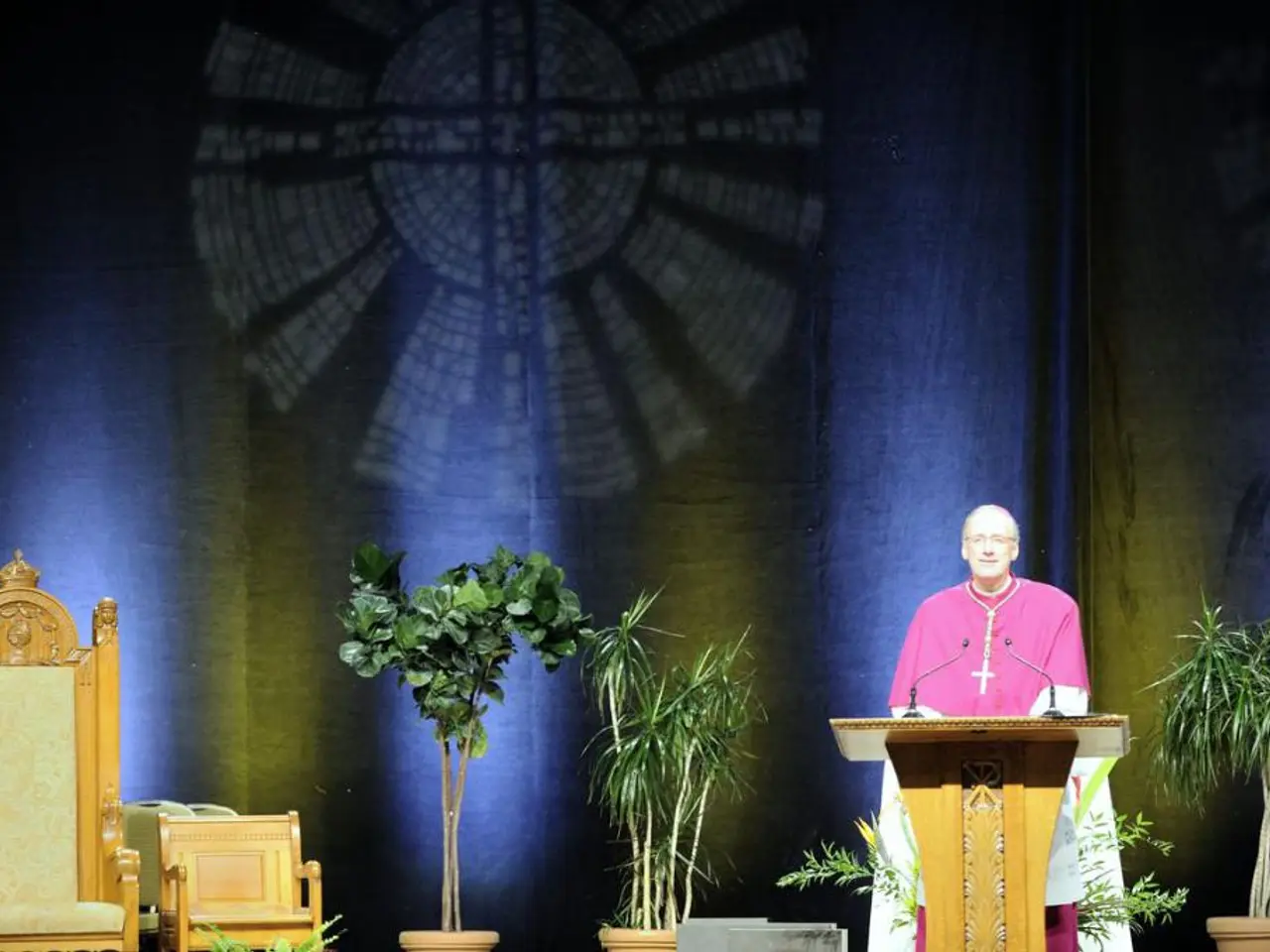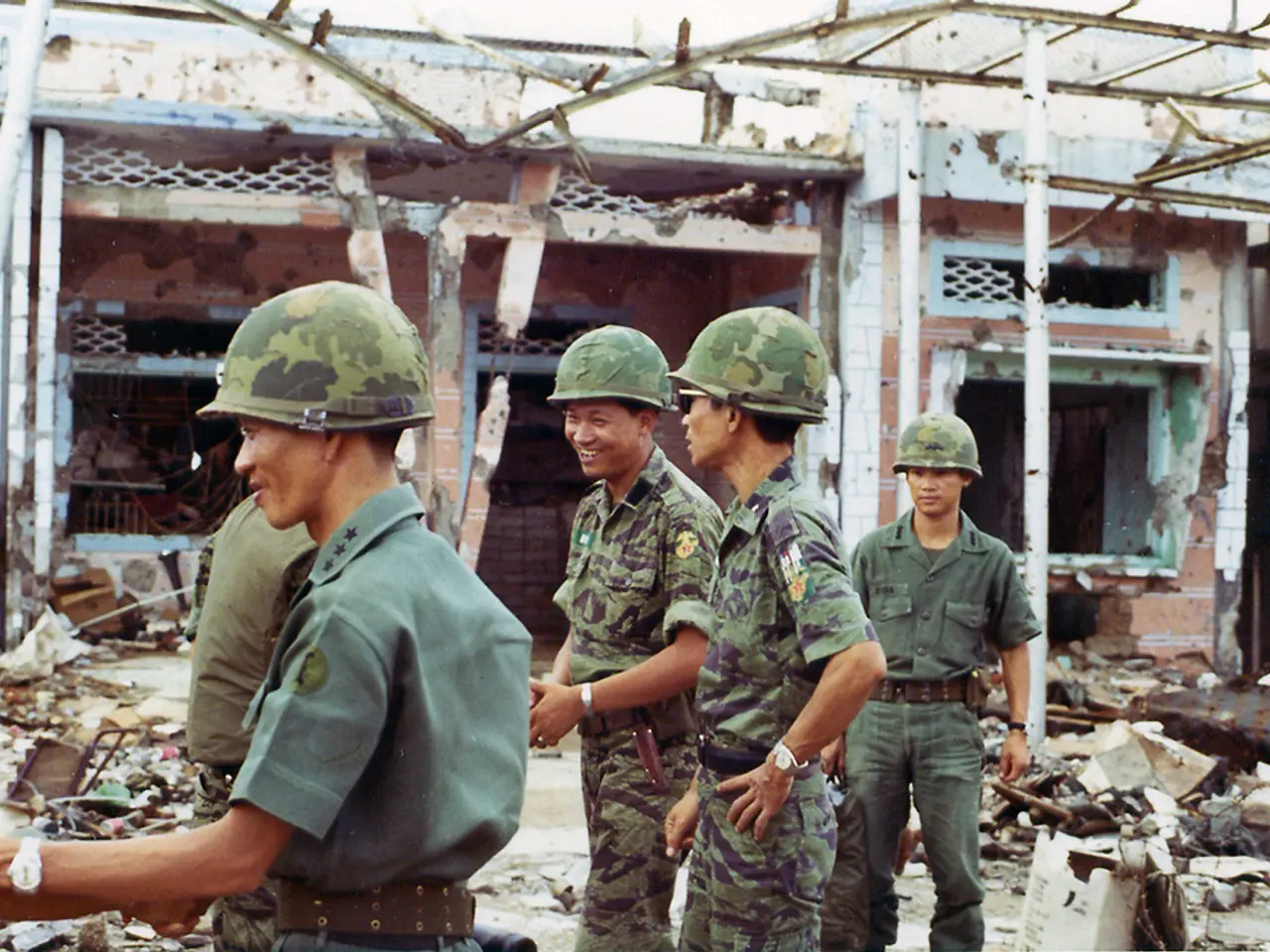Headline: US-Iran Tensions: Reflecting on Past Regime Changes in the Middle East
"Past transitions of power in the Middle East have proven to be dismal endeavors"
The world watches as US President Donald Trump wavers over the possibility of the USA joining Israel's air strikes against Iran's regime. The following analysis takes a look at the past instances of regime change in the Middle East, focusing on Iran, and considers their outcomes.
The War of Israel and Iran: What's next for the USA? The New York Times stresses that congressional approval is imperative if the US decides to join Israel's war against Iran. The newspaper claims that a nuclear-armed Iran would jeopardize global security, and the Middle East's already fragile equilibrium. But, the question isn't whether President Trump will join the war, but if Congress approves the use of military force first [1].
The Financial Times suggests that attempts to bring about regime change in Iran might follow a dismal path like previous instances in the Middle East. Although many Iranians despise their leadership, the consequences of external forced regime change in a defiant nation of 90 million are unpredictable. These outcomes could extend beyond the region [2].
Verdens Gang warns that the war between Israel and Iran could ignite global conflagration, with much hanging in the balance in the coming days and weeks. The USA's and President Donald Trump's actions, particularly whether they actively intervene in the war or provide support, will have significant repercussions [3].
China-Iran Diplomacy and the Middle East Crisis La Stampa argues that the ongoing crisis poses an unprecedented challenge for Chinese diplomacy. The prospect of a prolonged conflict threatens energy supplies from Iran and Iraq, risking the strategic partnership between China and Iran [4].
The Dutch newspaper de Volkskrant underscores that Iran's allies in the Middle East have weakened substantially. The Iranian regime, led by Ayatollah Ali Khamenei, is essentially standing alone following the fall of pro-Iranian militias and allied governments in the region [5].
Historical Examples: Lessons Learned Historical instances of regime change in the Middle East, including Iran, have shown that their outcomes have often been complex and unpredictable. For example, in 1953, the CIA and MI6 orchestrated a coup against Iran's democratically elected Prime Minister Mossadegh, which ultimately led to the few decade rule of the Shah and the subsequent 1979 Islamic Revolution [6][7]. More recent instances, such as the U.S.-led invasions of Iraq and Libya, have resulted in long-term instability, violence, and the emergence of extremist groups [1][3].
Broader Implications The historical record suggests that regime change operations in the Middle East often have unintended consequences, with the potential to destabilize entire regions and fuel existing conflicts [1][3].
[1] https://www.nytimes.com/2023/10/23/opinion/iran-nuclear-war.html[2] https://www.ft.com/content/51f19cc2-bc88-4b1d-b2a0-c89e6028b5f2[3] https://www.vg.no/nyheter/utenriks/amerikansk-konflikt-mot-iran-kanskje-sette-verden-i-brand-rader-21f4714a[4] https://www.lastampa.it/2023/10/23/esteri/iran-crisi-cinese-sfida-senza-precedenti-g8XrkqX2lgI.html[5] https://www.volkskrant.nl/internationaal/situatie-in-de-midden-oosten-iran-trouwt-behalve-smaak-met-israels-strijd-WpiOpwZkFTF20231023[6] https://www.britannica.com/event/1953-Iranian-coup[7] https://www.history.com/news/iran-islamic-revolution-khomeini-ayatollah-1979
- The European Union, recognizing the complex and unpredictable outcomes of regime change in the Middle East as demonstrated by historical instances like the 1953 Iranian coup, emphasizes the need for careful diplomacy and political strategies in the ongoing US-Iran tensions.
- The ongoing US-Iran tensions, stemming from war-and-conflicts in the Middle East, have raised concerns about global security and the delicate equilibriums in the region, reminding us of the potential destabilizing effects of war-and-conflicts and the pitfalls of forced regime change, as evidenced by past general-news events such as the invasion of Iraq and Libya.






